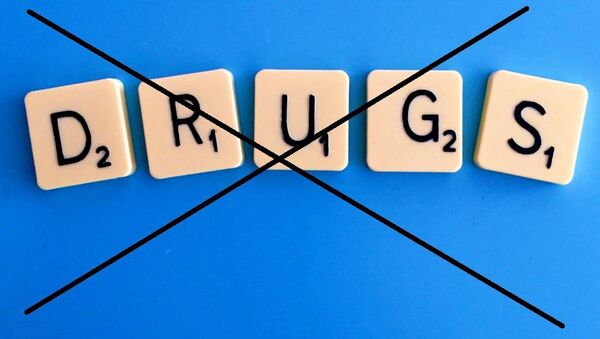While there have been 492 arrests since psychoactive substances were outlawed on May 26 this year, in total a mere four have been jailed under the powers as of December 28.
The UK Home Office said more cases were progressing through courts, and 332 shops across the UK have been stopped from selling the substances, whilst 31 so-called 'headshops' have closed entirely.
An exemplary conviction offered by the Home Office was William Cook, 29, of Crownhill, who caught in possession of hundreds of canisters of nitrous oxide and balloons at the Electric Daisy Carnival in Milton Keynes in July 2016. He was sentenced to 42 months in prison for possession with intent to supply in September 2016.
The powers mean offenders can receive a maximum of seven years in prison for supply, production, possession with intent to supply, importation or exportation of a psychoactive substance, and two years for possessing a psychoactive substance in a custodial institution. Police can also shut down 'headshops' and online dealers, with those who fail to comply facing up to two years in prison.
Our next pt has taken Legal Highs. He was found in a collapsed state by Christmas Shoppers. pic.twitter.com/NjaeZzpTQb
— Shaun Gerrard (@NWAmb_ShaunRG) December 17, 2016
Legal highs contain substances that produce similar psychoactive effects to "traditional" illegal drugs like cocaine, cannabis and ecstasy, although there is no officially agreed list of substances categorized as a 'legal high' or 'psychoactive substance.'
Selling so called 'legal highs' is anything but legal. https://t.co/T3xjU61tfN
— Mansfield Police (@MansfieldCops) December 14, 2016
The use of legal highs in UK prisons has been well-documented, with dealers using drones to drop illicit substances and other contraband within an institution's walls.
Between 2004 and 2013, the number of deaths involving legal highs in England and Wales was very small compared with heroin and cocaine, at 76. However, even in these cases, legal highs may not have been the primary cause of death, as death certificates often mention other substances.
To put this in context, over the same 10-year period there were more than 100 times as many deaths involving heroin or morphine (7,748) and more than 20 times as many deaths involving cocaine (1,752) than legal highs.
Nonetheless, the Home Office states deaths from legal highs have rocketed in recent years. In 2015, psychoactive substances were involved in 204 fatalities, up 25% from 163 in 2014.
Two people have been arrested in Lincoln for possession with intent to supply legal highs https://t.co/ocNqu3P4jR
— Lincolnshire Police (@lincspolice) December 16, 2016
Commenting, Home Office minister Sarah Newton said psychoactive substances can devastate lives and will not be tolerated in the UK:
"I am pleased to see the police making full use of the new powers, arresting dealers and ensuring they are punished with prison sentences which reflect the seriousness of this crime. At the same time as supporting law enforcement in tackling the supply of illegal drugs, we are also taking action to prevent the harms caused by their use — from educating young people about the risks to helping dependent individuals through treatment."
Legal highs have shifted from the head shops to criminal dealers thanks to the asinine Psychoactive Substances Act. Entirely predictable
— jeremyweate (@jeremyweate) December 2, 2016
Commander Simon Bray, the National Police Chiefs' Council's lead on new psychoactive substances, said the Psychoactive Substances Act had fundamentally changed the way the police tackle the supply and distribution of drugs:
"Across the country officers are using the full range of powers to enforce the law, and the figures released today highlight their commitment to reducing the availability of these harmful substances. I am confident that together with education, local authorities and other enforcement agencies, we can continue to disrupt the supply and accessibility of these drugs and prevent the damage they can cause."






